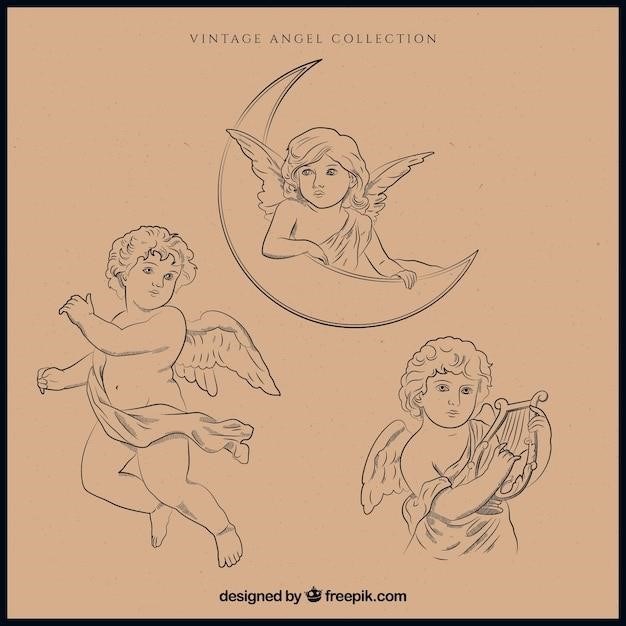Finding “Panis Angelicus” PDFs Online
Numerous websites offer free and paid downloads of “Panis Angelicus” sheet music in PDF format. Explore online sheet music libraries, music retailers, and dedicated choral websites for various arrangements. Consider platforms like IMSLP or CPDL for free scores.
Sources for Free Sheet Music Downloads
Several online resources provide free “Panis Angelicus” sheet music PDFs. The Choral Public Domain Library (CPDL) is a valuable source, hosting a vast collection of public domain choral scores, including various arrangements of this popular hymn. IMSLP (International Music Score Library Project) is another excellent option, offering a wide range of classical music scores, many available for free download. Websites specializing in free sheet music often feature “Panis Angelicus” in different versions for various voice types and instrumentations. Always check the licensing information before downloading to ensure legal use. Some websites may offer free downloads with registration, while others may have a selection of free scores alongside their paid offerings. Remember to respect copyright laws; only download music that is explicitly designated as public domain or that you have obtained the necessary permissions to use.
Sites Offering Paid and Free Scores
Many online sheet music platforms offer a mix of free and paid “Panis Angelicus” PDFs. Websites like SheetMusicPlus and Musicnotes.com are well-known examples, providing a vast catalog with both free public domain scores and paid arrangements by various composers and arrangers. The pricing varies depending on the complexity, arrangement, and publisher. Some sites offer a “freemium” model, providing a limited selection of free downloads while encouraging paid purchases for more extensive catalogs and higher-quality scores. These platforms often provide previews or samples of the music before purchase to help users make informed decisions. Be sure to compare prices and arrangements before committing to a purchase. Remember to always check the licensing details to understand the permitted uses of the downloaded music, to avoid copyright infringement.
Variations of “Panis Angelicus” Available
The availability of “Panis Angelicus” sheet music in PDF format extends to a wide range of arrangements. You’ll find versions for solo voice with piano accompaniment, suitable for both beginners and advanced singers. Many arrangements cater to choirs, ranging from small ensembles (SATB) to larger groups, often incorporating organ or orchestral accompaniment. There are also versions for multiple voices, sometimes with instrumental interludes, offering opportunities for diverse vocal combinations. The complexity of these arrangements varies greatly, from simplified versions for beginners to elaborate scores requiring advanced musical skills. Furthermore, the style of arrangement can differ, encompassing classical, contemporary, and even folk interpretations. These variations provide diverse options for performers, ensuring that “Panis Angelicus” can be experienced and performed in many contexts and settings.
Exploring Different Arrangements
From solo voice and piano to full choir and orchestra, “Panis Angelicus” boasts diverse arrangements. Explore versions for multiple voices and instrumental combinations, each offering a unique musical experience.
Arrangements for Solo Voice and Piano
Many readily available PDFs feature “Panis Angelicus” arranged for solo voice and piano accompaniment. These versions are ideal for intimate settings, recitals, or personal practice. The simplicity of the arrangement allows the vocalist’s interpretation to shine, highlighting the beauty and emotion of the text. The piano part often provides a delicate and supportive harmonic foundation, enhancing the overall musical effect. These arrangements are perfect for singers of various skill levels, ranging from beginners to advanced performers. The accessibility of these scores contributes to their widespread popularity, making “Panis Angelicus” a cherished piece for both amateur and professional musicians. You can find numerous versions online, each with its own unique nuances in the piano accompaniment, offering singers a range of interpretive options. The simplicity of the solo voice and piano arrangement makes it perfect for both formal and informal performances.
Arrangements for Choir and Orchestra
For a more expansive and dramatic interpretation, “Panis Angelicus” is frequently arranged for choir and orchestra. These arrangements often feature a full orchestral score, providing a rich and resonant backdrop for the vocal parts. The orchestral accompaniment enhances the emotional depth and grandeur of the piece, creating a powerful and moving musical experience. The interplay between the choir’s voices and the orchestra’s instruments results in a captivating sonic tapestry. These versions are typically used in large-scale performances, such as concerts, religious services, or choral festivals. The availability of these scores in PDF format allows for wider accessibility, enabling a broader range of choral groups and orchestras to perform this masterpiece. Finding these arrangements online requires some searching, but the rewarding experience of performing such a powerful arrangement makes the effort worthwhile. The grandeur of the orchestral setting elevates the hymn’s inherent beauty and spiritual significance.
Arrangements for Multiple Voices
Beyond solo and choral arrangements, “Panis Angelicus” exists in versions designed for multiple voice parts, enriching the harmonic texture and adding layers of complexity. These arrangements often feature two or more vocal lines, sometimes incorporating different voice types such as soprano, alto, tenor, and bass, creating a rich and full sound. The interplay between these voices generates intricate harmonies and counterpoints, highlighting the beauty and sophistication of the composition. These multi-voice settings can be found in various forms, from simple duets to more complex arrangements for larger ensembles. The specific combination of voices and their arrangement can significantly alter the overall feel and character of the piece, offering diverse interpretations. Digital distribution of these arrangements, often in PDF format, makes them readily available for a wide range of vocal ensembles, both amateur and professional, to explore and perform, bringing the evocative beauty of “Panis Angelicus” to life in diverse settings.

Understanding the “Panis Angelicus”
Delve into the historical context, exploring its composers and lyrical meaning. Uncover the religious significance of the text and its profound impact on audiences. Discover translations and explore its enduring legacy.
Historical Context and Composers
The hymn “Panis Angelicus” boasts a rich history intertwined with several notable composers. While the original Latin text is attributed to St. Thomas Aquinas, a Dominican friar and theologian of the 13th century, its musical settings have evolved across centuries. César Franck’s iconic version, composed in 1872 as part of his Messe à trois voix, remains the most widely recognized. This late-Romantic era composition showcases Franck’s mastery of harmony and melody, imbuing the text with a profound sense of reverence and beauty. Other composers have also crafted their interpretations, resulting in diverse arrangements reflecting different musical styles and periods. These include, but aren’t limited to, versions for solo voice, choir, and orchestra, demonstrating the enduring appeal and adaptability of the text. The historical context adds depth to appreciating the various musical settings of “Panis Angelicus,” each offering its unique interpretation of this timeless hymn.
Lyrical Meaning and Translations
The Latin text of “Panis Angelicus,” meaning “Bread of Angels,” speaks of the Eucharist, the central sacrament of Christianity. The lyrics express awe and wonder at the transubstantiation of bread and wine into the body and blood of Christ. The “bread of angels,” originally intended for heavenly beings, becomes the sustenance of humanity, a profound act of divine grace. Translations often capture the sacredness and mystery of the original text, though subtle nuances might be lost in translation. The hymn emphasizes the divine nature of the Eucharist and its transformative power, offering comfort and spiritual nourishment to believers. Many English translations emphasize the sacredness and mystery of the Eucharist, highlighting the divine gift of Christ’s sacrifice. The beauty of the lyrics lies in their simplicity and profound theological depth, making them suitable for both personal reflection and congregational worship. The lyrical meaning resonates deeply with those familiar with Christian theology, conveying the profound mystery of faith.
Religious Significance of the Text
The “Panis Angelicus” holds profound religious significance within the Catholic tradition, deeply rooted in the doctrine of the Eucharist. The text’s central theme revolves around the sacred bread and wine, transformed into the body and blood of Christ during the Mass. This central act of Christian worship emphasizes Christ’s sacrifice and his presence among believers. The hymn’s lyrical beauty and reverence reflect the solemnity and spiritual importance of the Eucharist. The “bread of angels” metaphor highlights the divine nature of the sacrament, emphasizing its sacredness and spiritual nourishment. The hymn’s use in liturgical settings reinforces its role in Catholic worship and devotion. The text’s contemplation of the divine mystery fosters reflection on faith, sacrifice, and the transformative power of the Eucharist. Its enduring popularity testifies to its powerful resonance with believers across centuries. The religious significance of “Panis Angelicus” continues to inspire contemplation and devotion, enriching the spiritual lives of countless individuals.

Legal Aspects of Downloading Sheet Music
Respect copyright laws; ensure downloaded “Panis Angelicus” PDFs are from legitimate sources with proper licensing. Understand public domain vs. copyrighted material to avoid infringement. Ethical use is key; always credit composers and publishers.
Copyright and Public Domain Considerations
Navigating the legal landscape of “Panis Angelicus” sheet music PDFs requires understanding copyright and public domain. Many arrangements of this hymn exist, and their copyright status varies greatly. Works published before a certain date (which varies by country) may be in the public domain, meaning they are free to use. However, newer arrangements or specific editions will likely still be protected by copyright. Downloading and distributing copyrighted material without permission is illegal and can result in penalties. Always check the copyright notice on the PDF itself, or contact the publisher or arranger if unsure about the legal status of a particular version.
Websites offering free downloads often operate under different licenses. Some provide free scores that are truly in the public domain, while others offer free scores only for personal, non-commercial use. Carefully read the terms of service and license agreements for any website from which you download “Panis Angelicus” sheet music to ensure you are not violating any copyright restrictions. Respecting copyright protects composers and arrangers, ensuring they receive the recognition and compensation they deserve. Using public domain versions promotes accessibility while respecting the intellectual property rights of others.
Licensing Agreements for Online Scores
Online sheet music platforms often operate under various licensing agreements. Understanding these agreements is crucial before downloading “Panis Angelicus” PDFs. Some sites offer free scores under Creative Commons licenses, specifying permitted uses (e.g., non-commercial use only, attribution required). Others might operate under more restrictive licenses, allowing only personal use or limiting distribution. Always review the specific license associated with each “Panis Angelicus” PDF before downloading. Failure to comply with the terms of a license could lead to legal issues.
Paid downloads typically come with a different set of licensing terms. Purchasing a score usually grants a non-exclusive license for personal use, sometimes including performance rights, but the specific terms can vary. Commercial use, such as reproduction for sale or public performance for profit, often requires separate permission or a different license. Before purchasing, carefully review the license information provided by the seller to understand the extent of your rights to use the downloaded “Panis Angelicus” music. Contacting the publisher directly is advisable if you have questions about the permissible uses of a particular score.
Ethical Use of Downloaded Music
Downloading “Panis Angelicus” sheet music PDFs necessitates ethical considerations beyond legal compliance. Respecting the intellectual property rights of composers and publishers is paramount. Even if a score is offered for free, it’s crucial to adhere to any stated conditions, such as attribution requirements or restrictions on commercial use. Distributing downloaded PDFs without permission is unethical, regardless of the license. Sharing or reselling downloaded scores undermines the creators and distributors who invest time, effort, and resources in providing access to musical works.
Furthermore, ethical use extends to acknowledging the source of the music when performing or sharing “Panis Angelicus.” Proper attribution gives credit to the composer, arranger, and any other involved parties. This not only respects their work but also promotes transparency and accountability within the music community. For public performances, especially using paid scores, ensure your use aligns with the licensing agreement’s terms. If uncertain, seek clarification from the copyright holder before using the music for any non-personal purpose. Ethical behavior fosters a supportive environment for musicians and ensures the sustainability of music creation and distribution.
